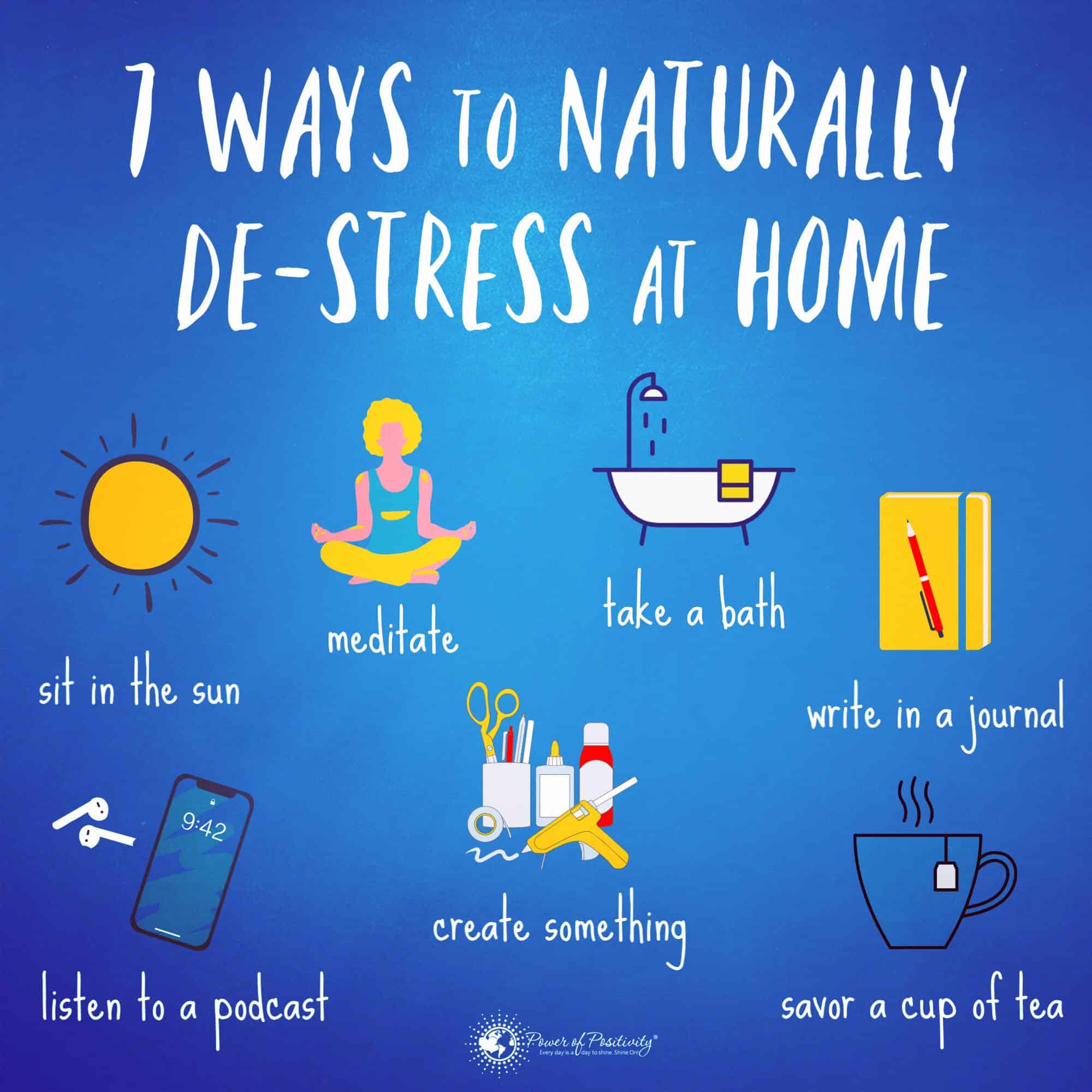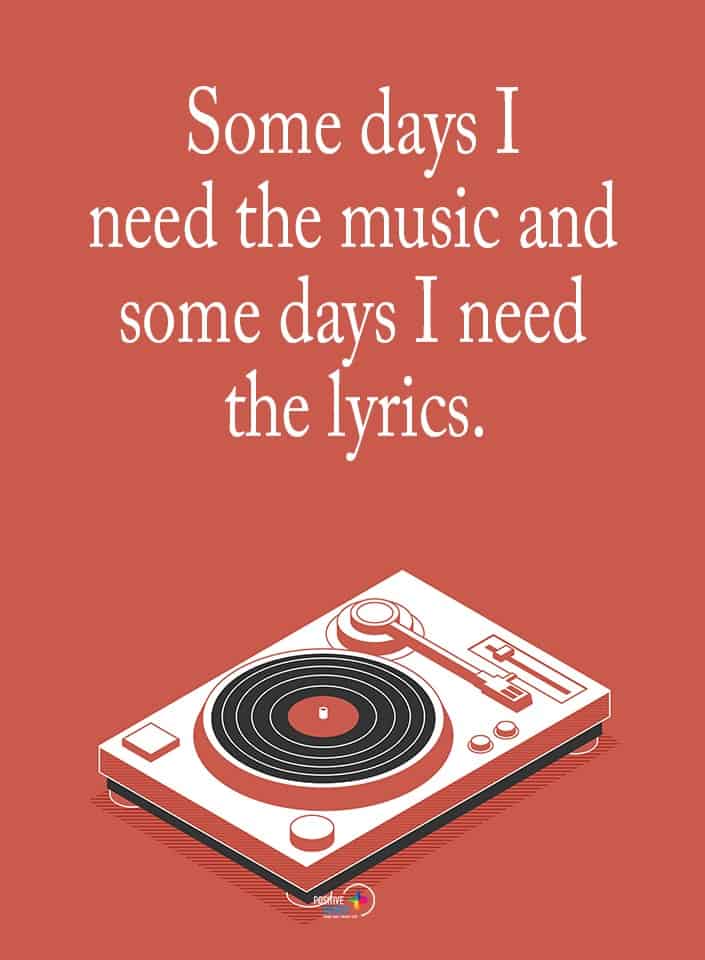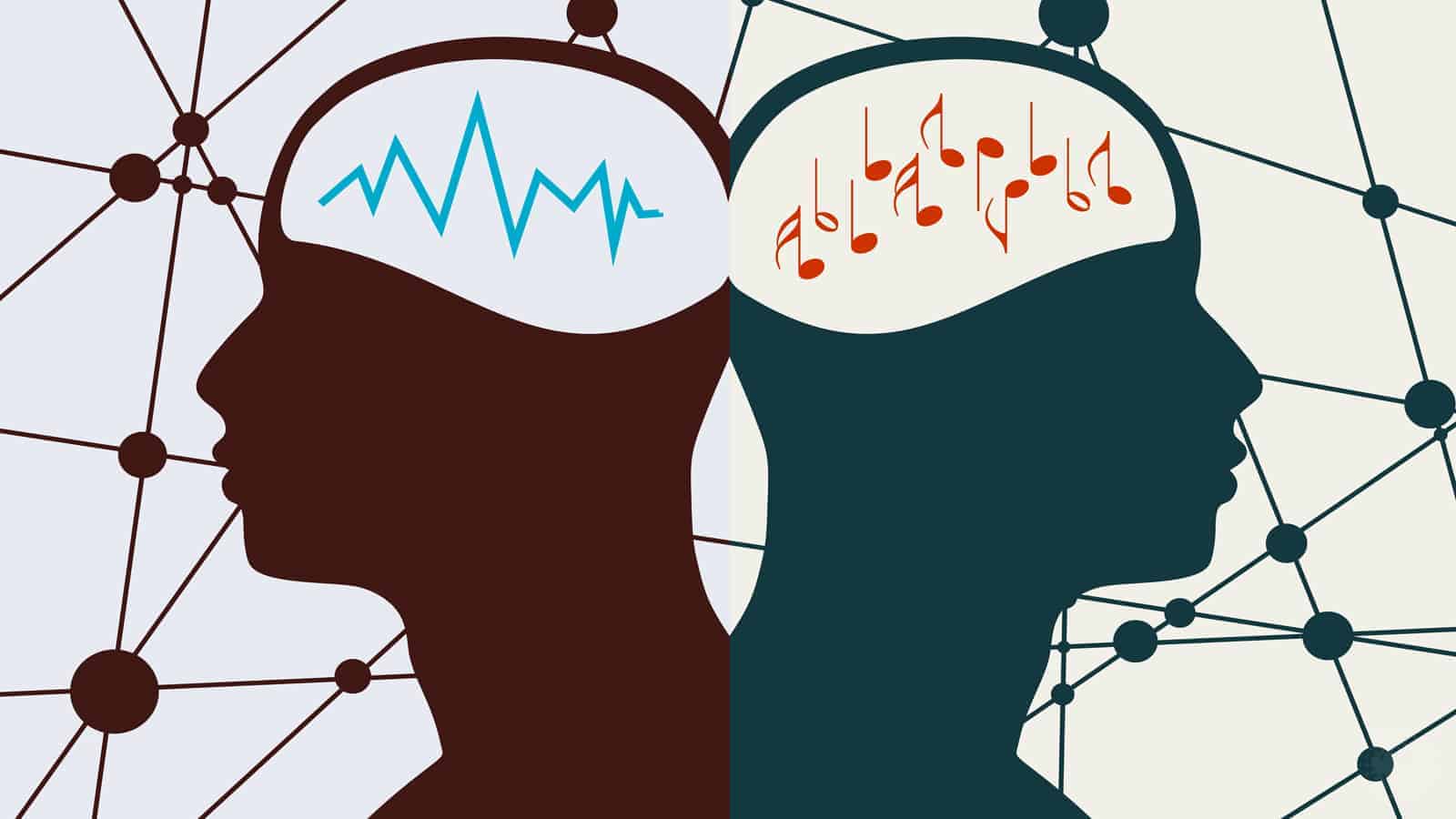Music is a powerful tool, and many people feel innately connected to the artform. For some, it’s even saved their life, improved their mood, or at least helped them or resonated with them in a time of need. Many people testify that music helps them connect to others, bringing people together over a shared love for an artist or genre.
But music’s effects go deeper than that and can affect you on a psychological level. Have you ever noticed that music can change the way that you feel? As it turns out, there’s a scientific basis for this experience – and not all of it is good!
Here are 6 positive and negative ways music influences your mood.
1. Positive: It Is Pleasurable
 Ever noticed how things seem better with music? There’s a good reason for that.
Ever noticed how things seem better with music? There’s a good reason for that.
Research has noted that we tend to derive a positive experience when we are playing music. As it turns out, the reason is that it activates the dopamine system, which floods our system with feel-good neurochemicals that can be addictive.
Some other activities that have a similar effect on us include:
- Have satisfying intimacy
- Enjoy good mood food
- Are experiencing pleasurable effects from drugs
This means that if you’re struggling with positive thinking or need to wean off an unsavory habit, then the chills you get from listening to good music may be just what you need!
However, not everyone experiences such emotional responses when listening to music. If you find yourself struggling with this, you may have something called musical anhedonia. That said, you’ll probably find that your favorite songs still have a good impact on your mood anyway!
2. Neutral: It Is Emotionally Contagious
Pay attention next time when you watch your favorite movie. Now try watching, say, a car chase scene without the music. Doesn’t it seem so much more boring afterward?
Despite being largely unnoticed by the casual viewer, musical scores have been important in just about every visual media we watch. The reasons are as follows:
· It Changes Our Emotions
As a general human species, we are meant to be empathetic creatures. This allows us to ensure we can care for others’ well-being and create closer emotional bonds that were advantageous for our predecessors. This means that we often also end up being affected by music too! The emotional aspect of a piece of music or a song often activates our natural tendency for mimicry and imitation. It ends up affecting our moods and thoughts in tandem with the expressed emotions!
· It Can Change A Group’s Emotions
Anyone who’s been to a concert can tell you this is a no-brainer, but here’s a subtler use case of this. One common psychological trick shops use to play the music that creates the atmosphere they want. That way, customers are more likely to buy things from that shop! Need an example? Consider how much more likely you are to pick out brighter, more cheerful colors when listening to positive bubblegum pop – versus, say, dark and somber colors when listening to something more melancholy.
· It Reminds You Of Your Experiences
Good, timeless songs often hitch onto specific ideas that evoke memories important to you – and by extension, also evoke any accompanying mood you may associate with it. An easy example would be any song that reminds you of your love for your partner or the loss of a loved one. So long as the circumstances or contexts line up, you’ll find yourself being reminded of it through the power of song.
3. Negative: It Can Spiral You Into A Sad Mood
Positive thinking is hard. Sometimes, you need to listen to a sad song and feel validated before you can move on. Other times, however, it can become an unhealthy act of wallowing in negativity.
Research has shown that when in a bad headspace, many people tend towards sad or negative music. However, despite that attraction, they don’t actually enjoy it – and often end up being more depressed afterward.
And yet, the behavior persists, with people claiming that it makes the following impact on mood:
- Helping them feel better (despite evidence to the contrary)
- Validating their hurt and pain
- Giving words to the emotions they feel
While using it as a temporary coping mechanism certainly has its benefits, in the long run listening to negative music for days, weeks, or even months on end can:
- Create a negative self spiral
- Enhance and heighten negative moods
- Encourage depression
As such, it’s a good idea to be mindful of how much negative music you’re listening to when you’re already upset. Sure, it may be a great source of validation, but after a while, you’ll have to move on.
 4. Positive: It Reduces Anxiety
4. Positive: It Reduces Anxiety
Positive thinking eluding you? Having difficulty keeping a cool head in a crisis? Music may be the solution for you! Here are a few reasons why:
· It Helps With Relaxation
Struggling to unwind and relax? A study has shown that music has shown that after listening to music, patients in rehabilitation therapy for stroke found themselves less anxious.
· It Lowers Stress Levels
Stress management can be difficult, but you may not have to resort to more complex methods just yet if you don’t want to. A study has shown that music can help reduce any anxiety and stress you have.
· It May Reduce Cortisol Levels
Cortisol, a chemical released when we are stressed, have been shown to cause us all sorts of physical issues – especially in the long run. Thankfully, a study has shown that listening to music may encourage the body to release less cortisol than normal when stressed. That finding makes an enormous impact on mood!
So the next time you find yourself increasingly frenzied and panicked, try taking a moment to put on a chill tune. It may be just that calming influence you need.
5. Negative: It Can Make You Judgemental
It only makes sense that music, which can affect our emotions, can also affect how we perceive emotion. And good news – we’ve got scientific proof to back this up!
As it turns out, science shows that listening to music can actually affect your visual perception of the emotional state of those around you. For example:
· You Read Faces Differently
Mood music can make you more sensitive to the emotion depicted by the background music being played. This means that you may be more sensitive to facial features that depict the appropriate mood you are experiencing with the music. For example, happy music makes it easier for you to recognize happy faces.
· You See Things That Aren’t There
The same study also presented an interesting phenomenon – even when presented with images that had no real face, the mood music still affected the way participants saw things. In other words, you might end up seeing emotions on faces that aren’t actually there or illusions that match up with the mood music.
· You See The World Differently
Mood music is a thing for a reason. The appropriate background soundtrack can make the world seem brighter than normal, and vice versa – despite the circumstances otherwise remaining the same.
This may not seem like a bad thing at a glance, but there is a worrying factor to this – that it can cause you to perceive and interpret what you see incorrectly. So if you want to really understand what exactly it is you’re looking at, you might want to try taking out your earbuds for a second.
6. Positive: It Makes You Feel Better Physically
We all know how important it is to keep yourself physically healthy – both for the sake of your body and your mind. Health benefits aside, regular exercise helps lower stress levels and releases happy chemicals like serotonin and dopamine.
With all that said, have you considered adding music into your healthcare toolbox? Because (surprise!) music also has many benefits that can help you in this regard!
· It Reduces Fatigue
Finding yourself putting on a good tune to help you make it through a slow night? Yup, there’s a reason for that too. Studies have shown that relaxing music not only helps people keep pushing through tiring, repetitive tasks but also increases the exhaustion threshold. In other words, listening to relaxing music makes it harder for you to feel mentally and physically tired!
· It’s Good For Your Heart
Enjoy moving and grooving to a good beat? That’s actually helping you out. Dancing your heart out is in and of itself a form of exercise that gets your blood pumping, and as a result, provides the cardio you otherwise wouldn’t have gotten. Not only that, research has shown that music can actually affect things like your heart rate, breath rate, and blood pressure. So it’s possible a good beat may be at least half the reason behind why you’re getting such a good cardio workout from your dance routine!
· It Aids Pain Management
As essential as pain medications are to one’s comfort, using them may not be everyone’s cup of tea, especially in the long term. Thankfully, there’s a solution – music! While not a perfect solution, studies have shown that music can help increase the effectiveness of pain management compared to just taking medication on its own.
· It Improves Exercise Performance
If you’ve ever put on a pumping beat to keep you going when you’re already tired, then you’ll probably know this phenomenon intimately. And now, science can back up what athletes have been saying for years! In addition to functioning as an external metronome to pace yourself with, fast and intense music helps you reach peak performance with less oxygen during your workout. Not to mention that exercising with good music also encourages longer workout sessions as well!
 Final Thoughts On Some Positive And Negative Ways Music Can Influence Your Mood
Final Thoughts On Some Positive And Negative Ways Music Can Influence Your Mood
Music has always had strong effects on people, and now there’s scientific evidence to prove it. Understanding how music influences your mood in both good and bad ways can help you tailor your preferred listening to your needs.
While no tune is inherently harmful, there’s no denying that some can hurt you more than they help, so take that into account as you build your playlist of favorites! Mindfully picking music that uplifts and aids you and those around you is a beautiful way to appreciate and love the many wonders of the art of music.




















